In the tranquil village of Melides, on the Alentejo coast of Portugal, lies a hidden gem that is the epitome of luxury, design, and sustainability – the Vermelho Hotel Melides. This boutique hotel, the brainchild of famed shoe designer Christian Louboutin, is a testament to audacious spirit and a love for culture and creativity.
The Vermelho Hotel Melides, which translates to Red Hotel Melides, is a nod to Louboutin’s signature colour. The hotel stands as a beacon of luxury in the serene coastal town, inviting guests from around the world to experience “la vie en rouge” or life in red.
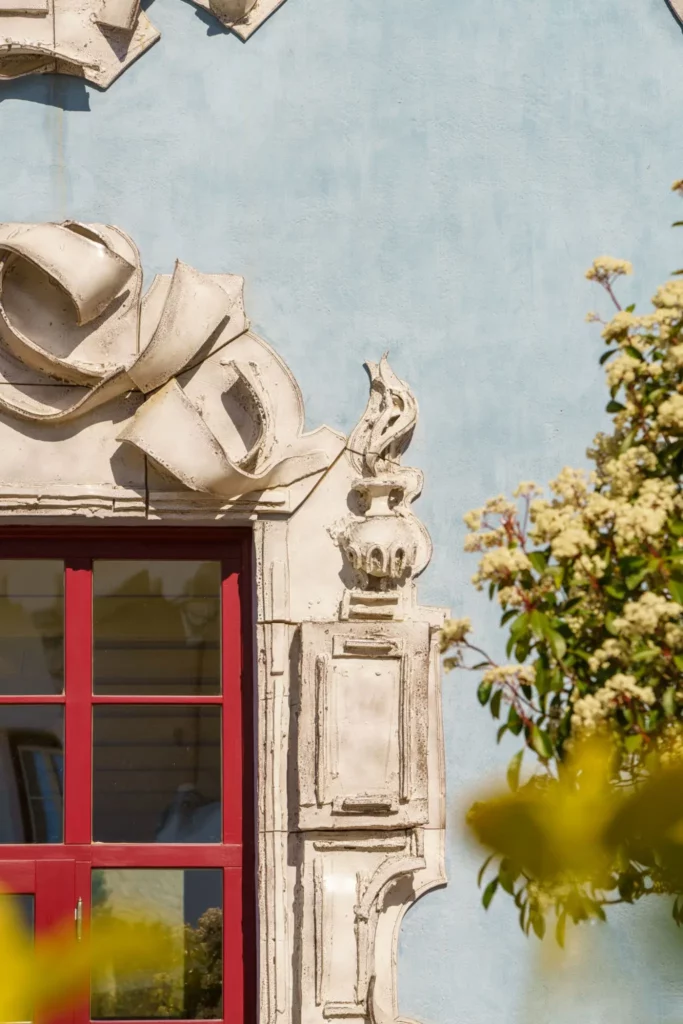
Photo credit: Vermelho Hotel Melides
The history of the hotel is as captivating as its design. Christian Louboutin, known for his iconic red-soled shoes, ventured into the hospitality industry with Vermelho Hotel Melides. The designer, who owned property in the nearby town of Comporta, fell in love with Melides, a small village barely half an hour away. He was captivated by its dense pine forests, marshy lagoon, and beaches of unequalled beauty.
Louboutin bought an old fisherman’s house in Melides and transformed it into a tranquil escape where he entertained friends. Vermelho Hotel Melides is his flamboyant flagship, a rare fresh build in this town, brought to life with the help of Portuguese architect Madalena Caiado. The hotel is a testament to Louboutin’s vision and his love for the village of Melides.
The Vermelho Hotel Melides is more than just a hotel; it’s a celebration of design, a journey through history, and a commitment to a sustainable future. It’s a place where the gentle pace of Melides life meets the ultimate luxury, a place that welcomes guests from every corner of the world to live “la vie en rouge.”
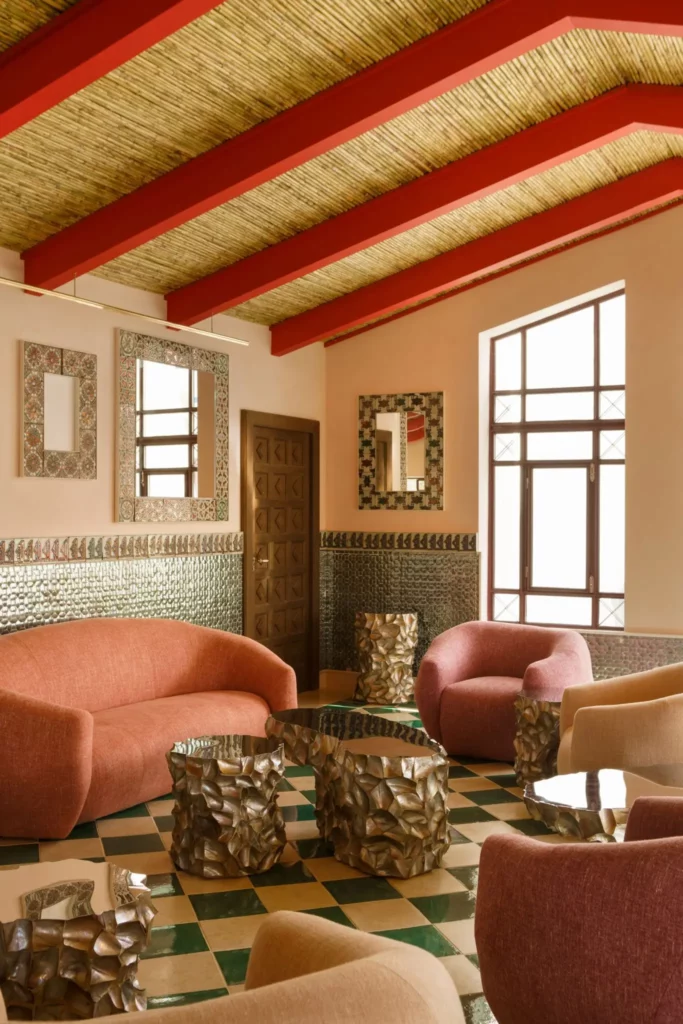
Photo credit: Vermelho Hotel Melides
The Architecture
The architecture of Vermelho Hotel Melides is a harmonious blend of traditional Alentejo and Spanish design elements, reflecting the coastal charm of Portugal. The exterior of the hotel is marked by a hand-sculpted façade, a work of Italian sculptor Giuseppe Ducrot, adding a touch of grandeur to the hotel’s appearance.
The hotel’s design is a thoughtful integration of the old and the new. The historical wooden doors of the hotel serve as a gateway to its rich past and the contemporary luxuries it offers. The doors, a significant architectural element, are a nod to the region’s history, inviting guests to step into a space where the past and the present coexist.
The hotel’s name, Vermelho, meaning red in Portuguese, is subtly incorporated into the architecture. The use of colour is restrained and strategic, with the red accents standing out against the predominantly white and blue palette that characterizes this part of coastal Portugal.
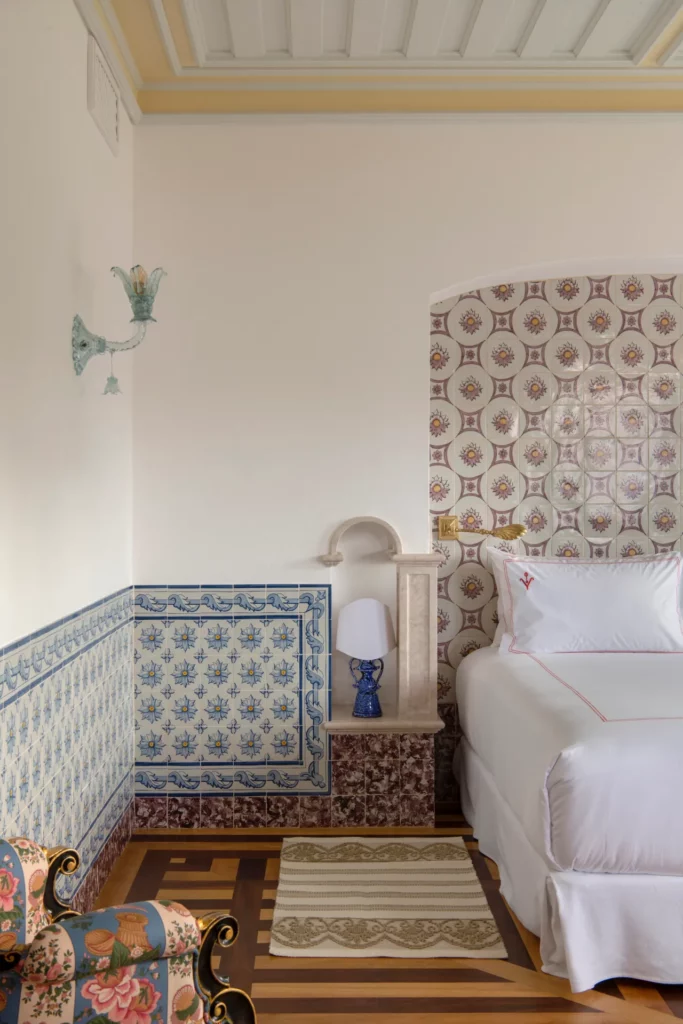
Photo credit: Ambroise Tézenas
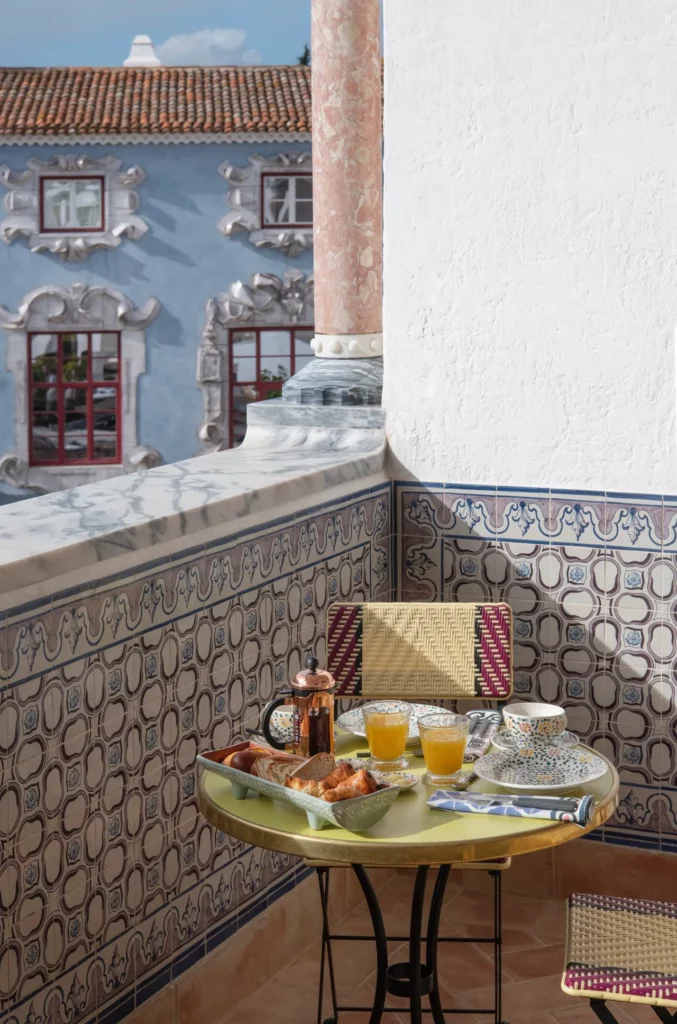
Photo credit: Ambroise Tézenas
The architecture of Vermelho Hotel Melides is not just about aesthetics; it’s also about sustainability. The hotel employs geothermal heating and air conditioning, a testament to its commitment to eco-friendly practices. The use of local materials and design elements also underscores the hotel’s efforts to stay rooted in its cultural context while making a minimal environmental impact.
The architecture of Vermelho Hotel Melides is a reflection of its ethos – a blend of luxury, design, and sustainability. It’s a space where traditional design elements meet modern luxuries, where every architectural detail tells a story.
The Interior Design
The interior design of Vermelho Hotel Melides is a testament to the creative vision of Christian Louboutin and his team. Each of the thirteen rooms in the hotel is a unique expression of Iberian artistry, with the area’s heritage woven throughout the design elements.
The rooms are individually designed, each flaunting its own tonalities and identity. The use of colour is strategic and impactful, with Louboutin’s signature red making occasional appearances. The green jewel-toned tiled floors add a vibrant contrast to the otherwise neutral palette.
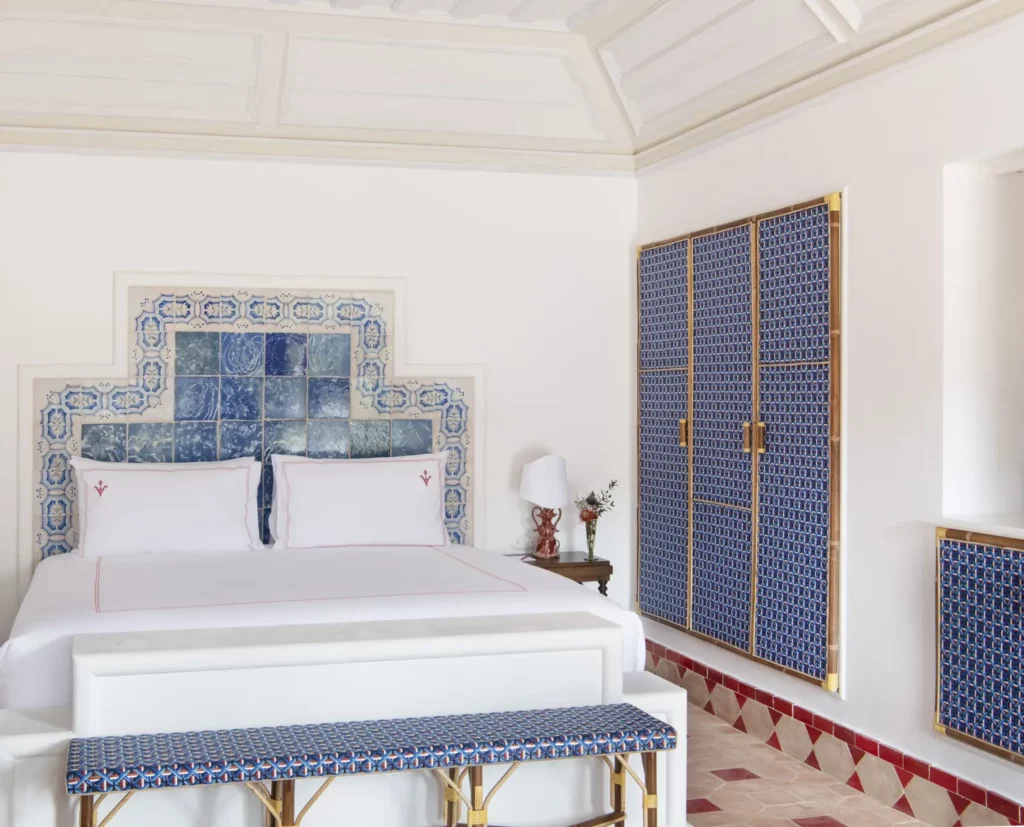
Photo credit: Vermelho Hotel Melides
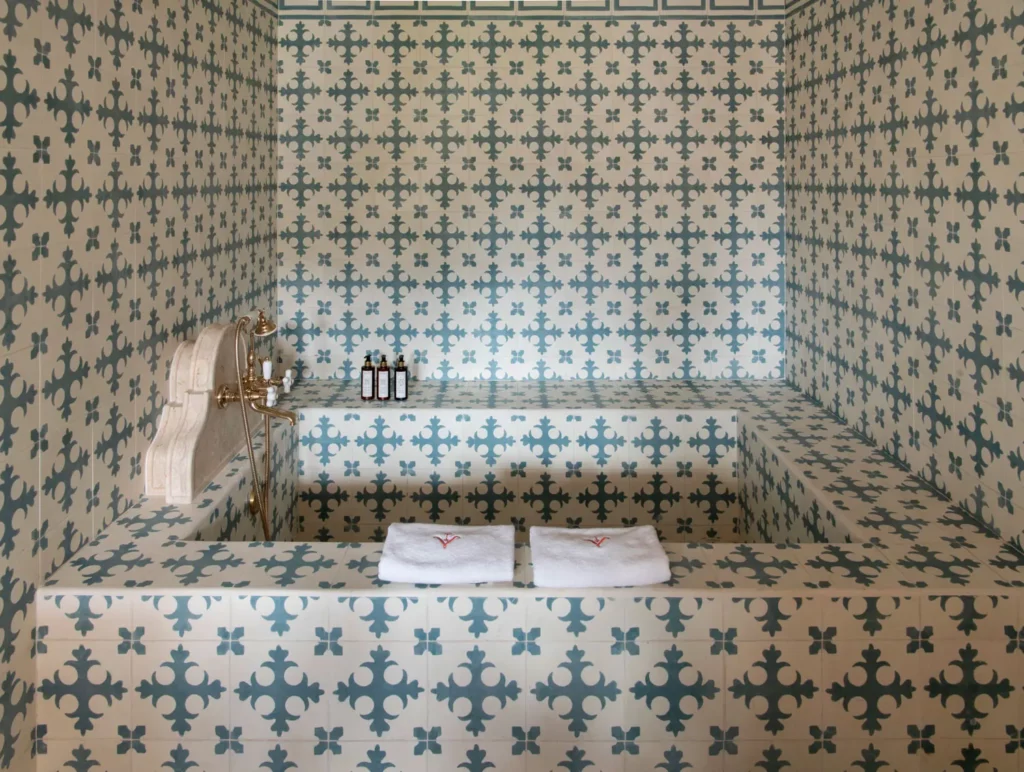
Photo credit: Ambroise Tézenas
One of the standout features of the rooms is the hand-painted walls, a collaboration with Greek artist Konstantin Kakanias. These murals add a unique artistic touch to the spaces, making each room a distinct piece of art.
The interior design extends beyond the rooms. The hotel’s restaurant, Xtian, led by Portuguese Chef David Abreu, is a culinary space that reflects the local Alentejo cuisine. The design of the restaurant complements the gastronomic experience, with tableware sourced from local design store Vida Dura adding a touch of local charm.
The interior design of Vermelho Hotel Melides is a blend of luxury and local culture. It’s a space where traditional design elements meet modern aesthetics, where every detail contributes to the overall experience.
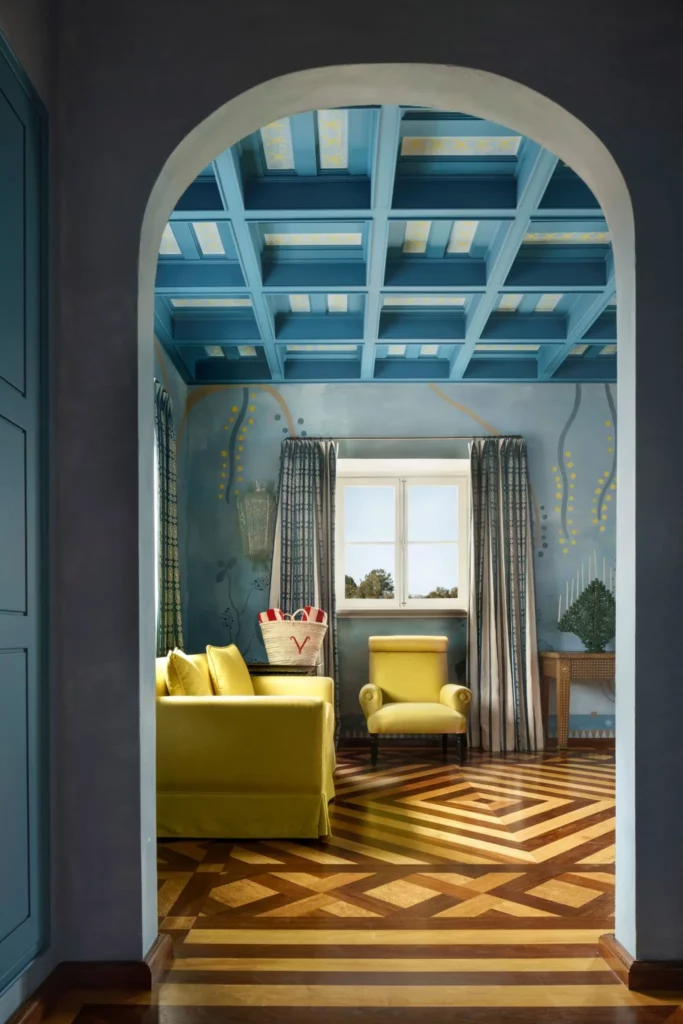
Photo credit: Courtesy of Vermelho Hotel Melides
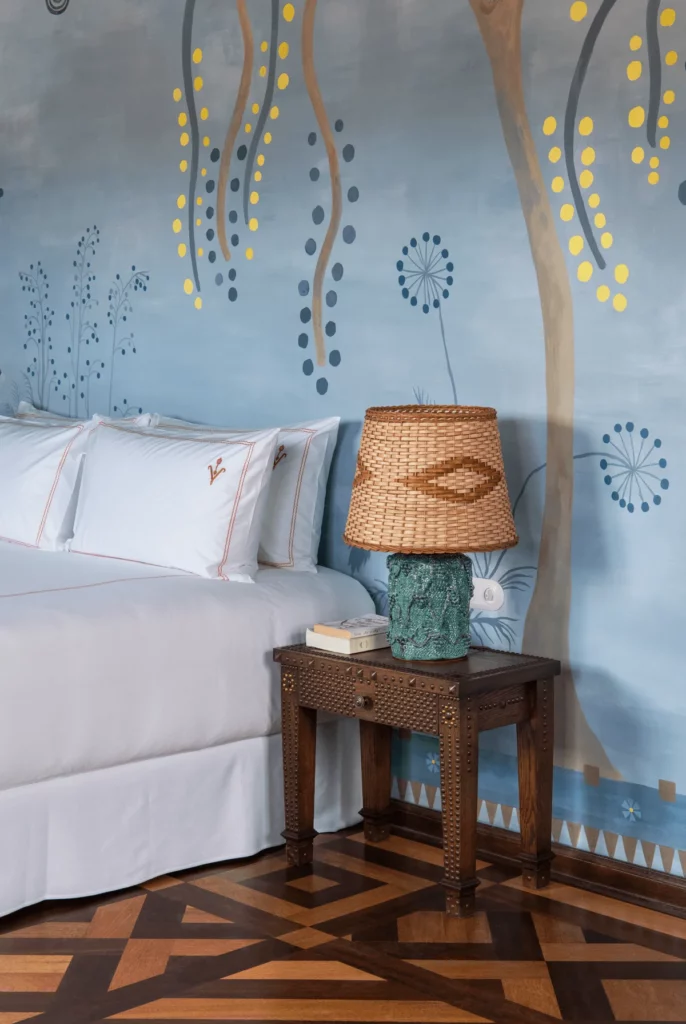
Photo credit: Courtesy of Vermelho Hotel Melides
A Care for Sustainability
Vermelho Hotel Melides is not just about luxury and design; it’s also about sustainability. The hotel’s commitment to eco-friendly practices is evident in its operations and infrastructure.
The hotel employs geothermal heating and air conditioning, a testament to its commitment to sustainable energy sources. Water reducers are installed in bathrooms, reflecting the hotel’s efforts to conserve water. LED bulbs are used throughout the property, minimizing energy consumption.
The hotel’s commitment to sustainability extends to its culinary practices as well. The restaurant sources culinary ingredients locally, reducing the carbon footprint associated with food transportation. Plans are underway for the development of their own orchard, which will further enhance the hotel’s self-sustainability.
In addition to these practices, the hotel is also committed to minimizing plastic waste. Guests are provided with plastic-free glass filtered water bottles, reducing the reliance on single-use plastic bottles.
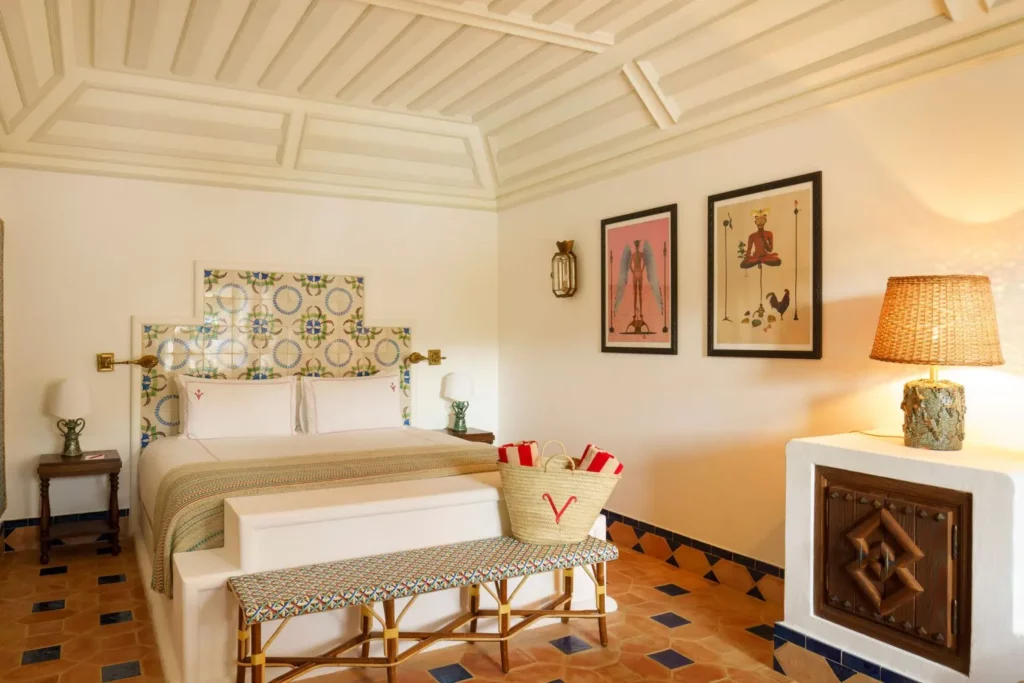
Photo credit: Vermelho Hotel Melides
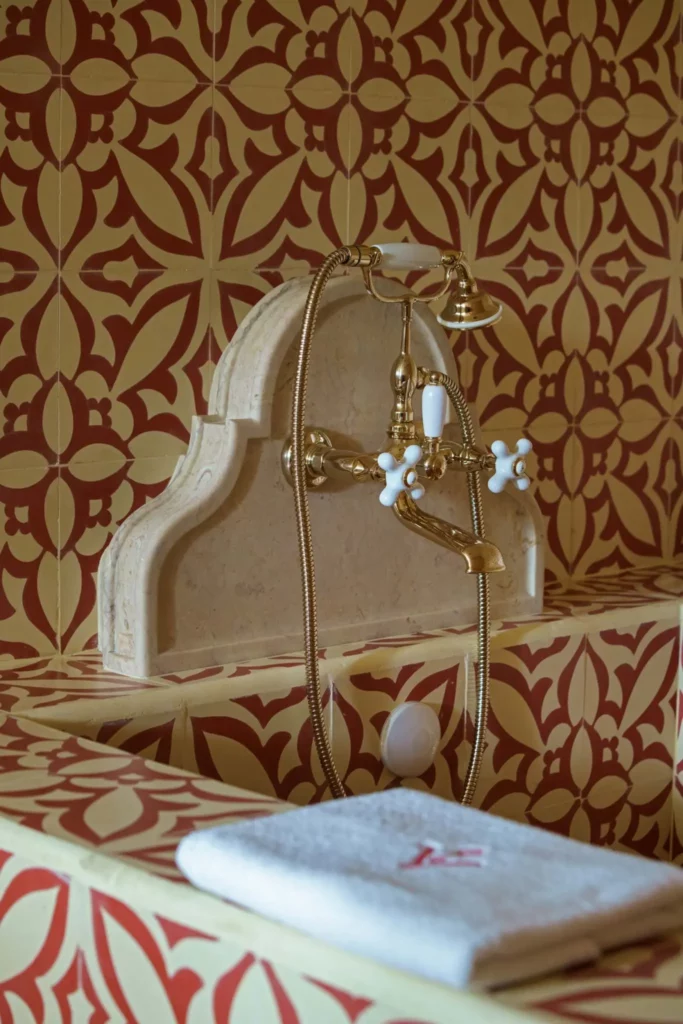
Photo credit: Vermelho Hotel Melides
Vermelho Hotel Melides, conceptualized by Christian Louboutin, stands as a unique establishment in Melides, Portugal. It successfully combines traditional design elements with modern aesthetics, all while prioritizing sustainability. The hotel offers a diverse cultural experience, allowing guests to appreciate the tranquillity of Melides and the thoughtful design that characterizes the property. It’s more than just a hotel; it’s a testament to the harmonious coexistence of luxury, heritage, and environmental responsibility.









